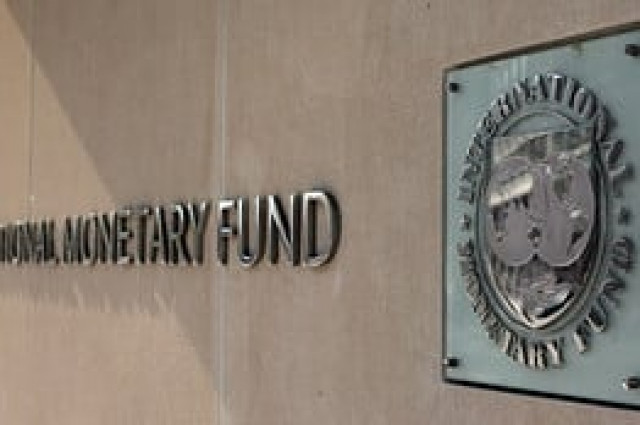Supply will cost Rs542b amid disputes over price, storage and provincial share
ISLAMABAD:
The International Monetary Fund (IMF) has once again allowed Pakistan to buy wheat to replenish its depleting reserves, while leaving it to the government to determine the level of strategic stocks and continue with plans to purchase 6.2 million tonnes this year, an aide to the prime minister said on Monday.
Ahmed Umair, Prime Minister’s coordinator for agriculture, clarified that the officially announced price of Rs3,500 per 40 kilograms is not a fixed support price but an indicative rate linked to international market trends and subject to revision.
A day earlier, the Prime Minister’s Office had said that the federal and provincial governments would jointly purchase 6.2 million tonnes of wheat at a rate of Rs 3,500. Umair said the IMF had agreed to allow these purchases to replenish the country’s wheat reserves.
In September last year, the IMF blocked federal and provincial governments from intervening in commodity markets. The ban on purchases by all governments led to a fall in wheat prices, falling to as low as Rs 2,200 per 40 kg, from a peak of around Rs 5,500.
Responding to a question on whether the decision to purchase 6.2 million tonnes of wheat, requiring Rs542 billion, would be considered a “strategic reserve”, Umair said it was up to the country to determine its national strategic reserve levels.
The IMF’s claimed consent to buy the raw materials can save the program $7 billion, as the IMF had called reforms in commodity markets one of the main successes of the year-and-a-half-old program.
“The authorities are considering reforms to reduce government intervention in commodity markets to foster a productive, diversified and internationally competitive agricultural sector that meets food security needs,” IMF Pakistan Mission Chief Iva Petrova said last week in announcing the staff-level agreement.
The IMF had banned wheat purchasing operations to end market distortions and ease pressure on provincial budgets. IMF Resident Representative Mahir Binici did not respond to a request for comment Monday.
The government’s decision came weeks before the IMF board considered Pakistan’s request to complete the second review of the $7 billion bailout package and the first review of the $1.4 billion climate facility.
After a meeting with provincial chief ministers, the Prime Minister’s Office announced that the government has approved a new wheat policy for 2025-2026 at a high-level meeting chaired by Prime Minister Shehbaz Sharif.
The Prime Minister announced that the federal and provincial governments would procure 6.2 million tonnes of strategic wheat reserves for the 2025-2026 season. The purchase will be at Rs 3,500 per 40 kg, aligned with international wheat import prices, according to the Prime Minister’s Office.
PM meeting
Sources said there was a consensus between the federal and provincial governments to purchase wheat and support farmers. However, there was disagreement over price discovery and the Prime Minister referred the matter to Deputy Prime Minister Ishaq Dar to reach a consensus with the Sindh government.
The Sindh government had proposed a price of Rs 4,000 per 40 kg in the meeting, which the federal government did not accept. It was decided that the local price of wheat would be neither lower nor higher than that of the international market to avoid any distortion.
The price of Rs 3,500 per 40 kg is an indicative price and reflects the current international market price, including transportation costs, which shows that the new policy does not favor either farmers or consumers, Ahmed Umair said. The agricultural coordinator said the pricing methodology had been shared with the IMF, which had also approved it.
However, Sindh Agriculture Minister Muhammad Bux Mahar demanded that the federal government fix the support price of wheat at Rs 4,200 per 40 kg. He pointed out that the Pakistan People’s Party Central Executive Committee (PPP-CEC) had also made the same demand the day before.
Wheat objectives
According to the decision, the federal government will purchase 1.5 million tonnes of wheat through the private sector, including 500,000 tonnes to meet the needs of special zones. Punjab will purchase 2.5 million tonnes, Sindh 1 million tonnes, Khyber-Pakhtunkhwa 750,000 tonnes and Balochistan 500,000 tonnes.
The two small provinces will also purchase wheat from Punjab and Sindh. The cost of storing 6.2 million tonnes of wheat for a year is estimated to be Rs125 billion, the sources said. Umair said the private sector will purchase and store wheat on behalf of the federal government after the decision to abolish the Pakistan Agriculture Storage and Services Corporation (PASSCO).
However, the sources said the Sindh government would purchase its entire million tonnes of wheat without involving the private sector.
When the private sector is involved, it will be financially compensated by the government concerned due to the purchasing services, storage services and financial costs that these operators will pay on the amounts to be used for the purchase of wheat. The government will issue licenses and only licensees will be allowed to offer procurement services, the sources said.
The original plan was that starting next year, the government would completely end restrictions on the import and export of wheat to ensure a level playing field for farmers. However, instead of deregulating the market, the government reversed the old decision, which had also resulted in immense financial losses.
According to the IMF’s first assessment report, Pakistan had assured the global lender that substantial progress had been made towards a new framework for the wheat sector. He had also assured the IMF to refrain from wheat procurement operations and considered the reduction in prices as an “important benefit” for consumers, which also brought food inflation under control.
The IMF had also been informed that the provinces had repaid most of the inherited debt linked to commodity operations. The IMF urged Pakistan to expand its efforts to other products, including reviewing relevant legislation and empowering competition authorities, to enable an agile and competitive agricultural sector that also meets consumer needs.




